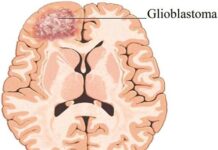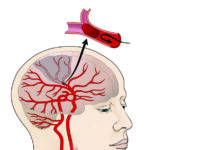A study of large-scale functional brain network organization and educational history, led by researchers at the Center for Vital Longevity (CVL), has identified a new biomarker of Alzheimer’s disease. The findings, published online this week in Nature Aging, describe how declines in a measure of brain network organization precede cognitive impairment in older adults. Researchers also found that brain network declines are greater among individuals without a college education, suggesting that there are aspects of an individual’s environment that may accelerate brain aging.
“What’s exciting about this study is that we’ve identified a measure of brain function that seems to be sensitive to an individual’s past and present environmental exposures during adulthood. That brain network organization is also uniquely related to the prognosis of dementia, which opens up the possibility of incorporating the measure with other markers of Alzheimer’s disease risk and pathology in a clinical setting,” says Dr. Gagan Wig, director of the Wig Neuroimaging Lab at the CVL and associate professor at The University of Texas at Dallas.
It is well known that older adults with lower education levels are at a greater risk of dementia. But it’s unknown why some are more likely to develop dementia than others. The results from this study shed light on an important biomarker of clinical decline by showing that the trajectory of a person’s brain network organization varies according to their educational attainment, and is a unique indicator of individual brain health during older age.



























